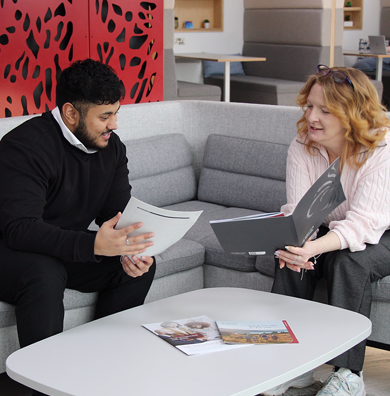In December of 2022, my mum lost her battle with cancer, very suddenly. The chaos that ensued was a whirlwind of telling loved ones and friends, planning a funeral, and looking after my younger brother and widowed father. That chaos extended to the funeral, which was fortunately more of a celebration of life, but it really is true what everyone tells you, after the funeral, the grief hits you like a truck.
Grief comes in many forms and does not have to be brought on purely from the death of a loved one. It can occur after serious illness or injury, divorce, abuse, or another cause. The brain interprets grief as emotional trauma or post-traumatic stress disorder (PTSD). Grief and loss can affect the brain and body in many ways. They can cause changes in memory, behaviour, sleep, and body function, affecting your immune system as well your heart. It can also lead to cognitive effects, such as brain fog. The brain’s main goal? Survival.
Personally, for me, I have suffered massively with brain fog. I felt like my work was majorly affected and my confidence plummeted. It was hard to vocalise the problems I was having, as in my mind, I felt I was using the loss as an ‘excuse’. I know now that this is not the case, and my brain truly has been altered by something so unprecedented. It’s completely normal that my work was affected by something of this magnitude.
So, what does this mean for you in the workplace? Disclaimer – there’s no right or wrong in handling grief, but the clichés are clichés for a reason. People telling you it will get better with time, at the beginning, can feel jarring and unthoughtful, but it is true.
I have included a few tips to help, these are tried and tested (by myself) and following them will not make the grief go away but it will hopefully make your life easier.
Take your time
At the start, you may feel like throwing yourself into work. This is because your brain needs distraction from the trauma of what has happened. My advice would be to try to take your time. Communicating with your manager is extremely important and taking some time off to help you process is not anything to be ashamed of. Your brain will thank you for it, and it massively reduces the risk of grief-related burnout.
Tell your manager about important dates and anniversaries
Similarly, speaking to your manager regarding important dates and anniversaries is something I would strongly recommend. At the start of grief, the ‘firsts’ are in my opinion the hardest days. Speak to your manager to let them know that on a certain day you may need some time offline, or it would be better for you to work from home. You cannot control when you have bad days but pre-planning when you know a day will be hard will really help you avoid the feeling of your grief getting out of control.
Rely on your people
I could not have got through my worst days without relying on friends, family, or my partner. Whoever you have in your life will want to help you through it. It may feel like they can’t understand exactly how you’re feeling, but just knowing that they will do everything they can to try to relate and help you through will be extremely comforting as time goes on.
Don’t be afraid to use resources like counselling
Many employers offer free counselling sessions through either an employee assistance programme (EAP) or health plan. Just the word ‘counselling’ may feel like a taboo topic and some people find it difficult to open up, but the coping tools provided to you by professionals can be invaluable, helping you manage your emotions and cope with the effects of grief on your daily life.
Talk
Every single person will experience some form of grief in their life, so why is it such a hard topic to talk about? I have experienced people feeling extremely awkward when I have been open about the fact my mum died, but I have also experienced people being open to me to talk about their own experiences. Sharing experiences can help you feel less alone, and the act of being straightforward about your experiences can be undeniably cathartic.
Talking things through with a friend over a coffee can really help. Build in some time to spend with a loved one to open up about what you’re feeling.






